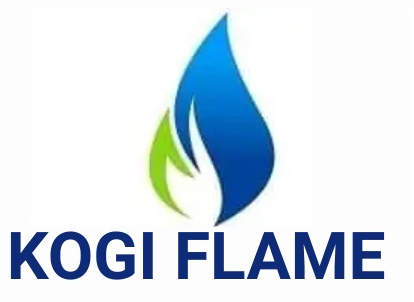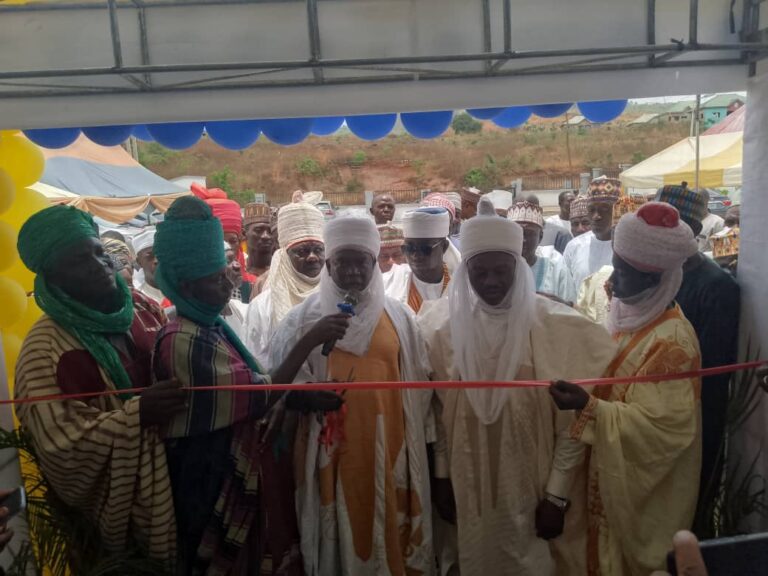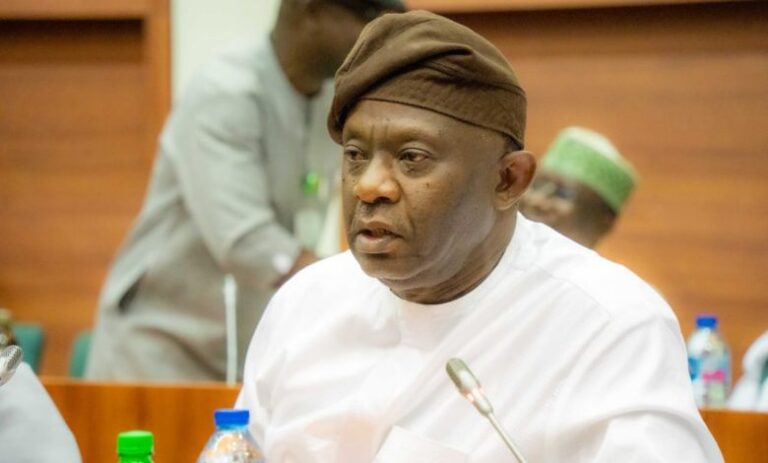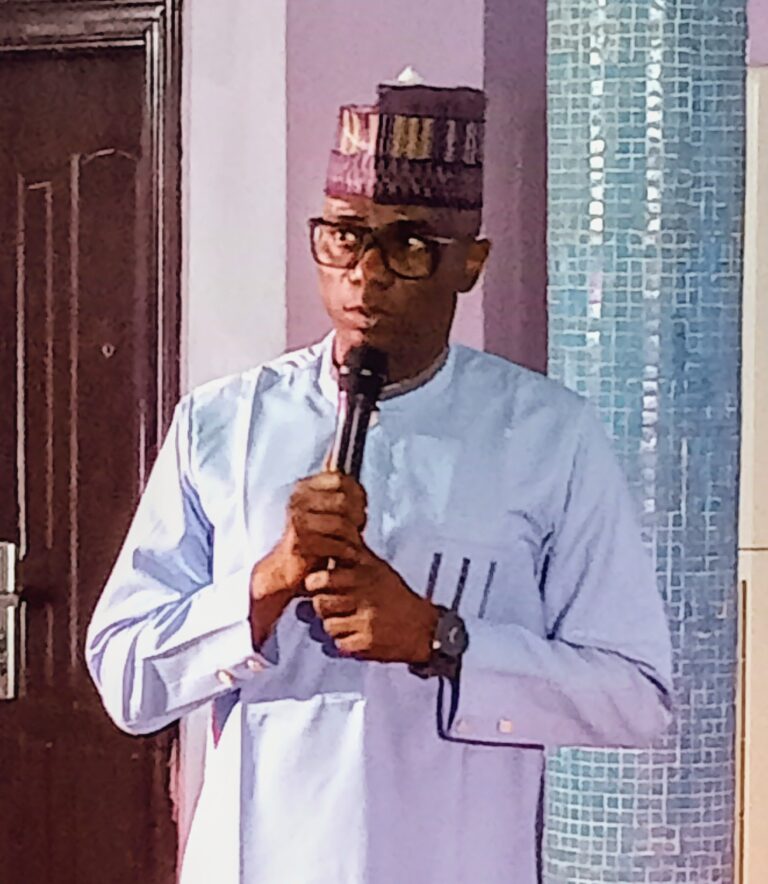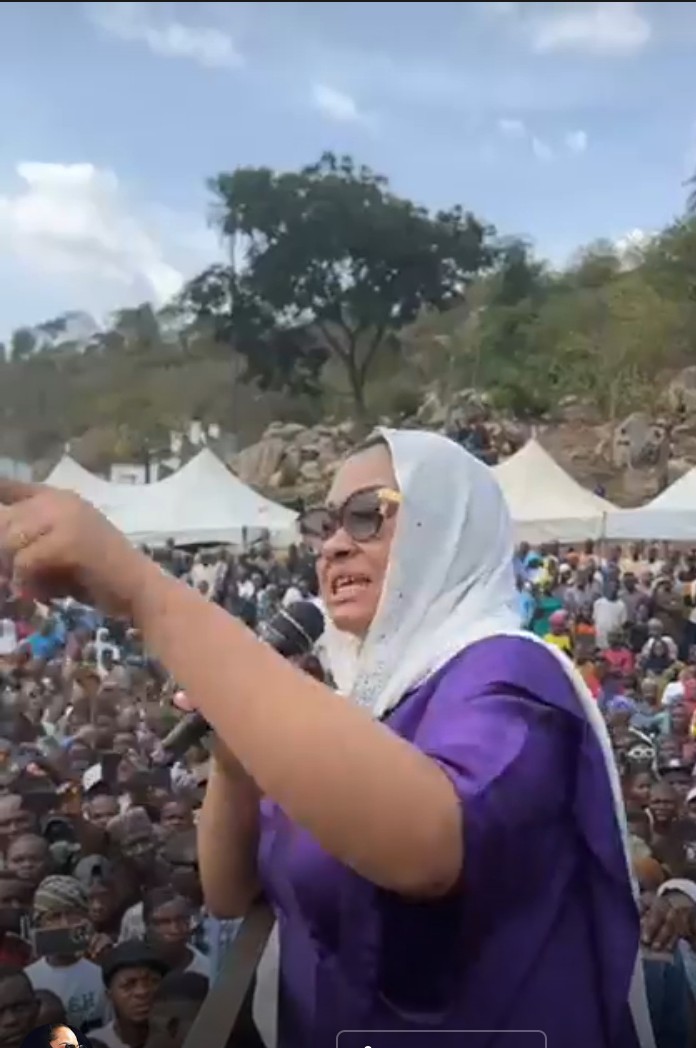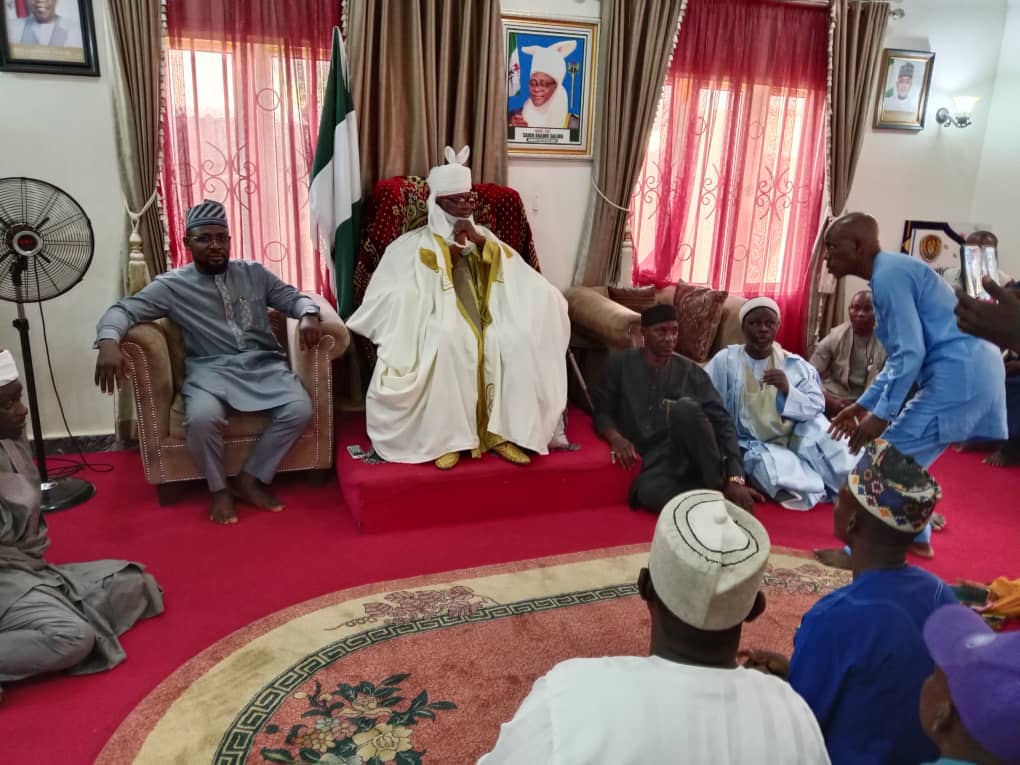

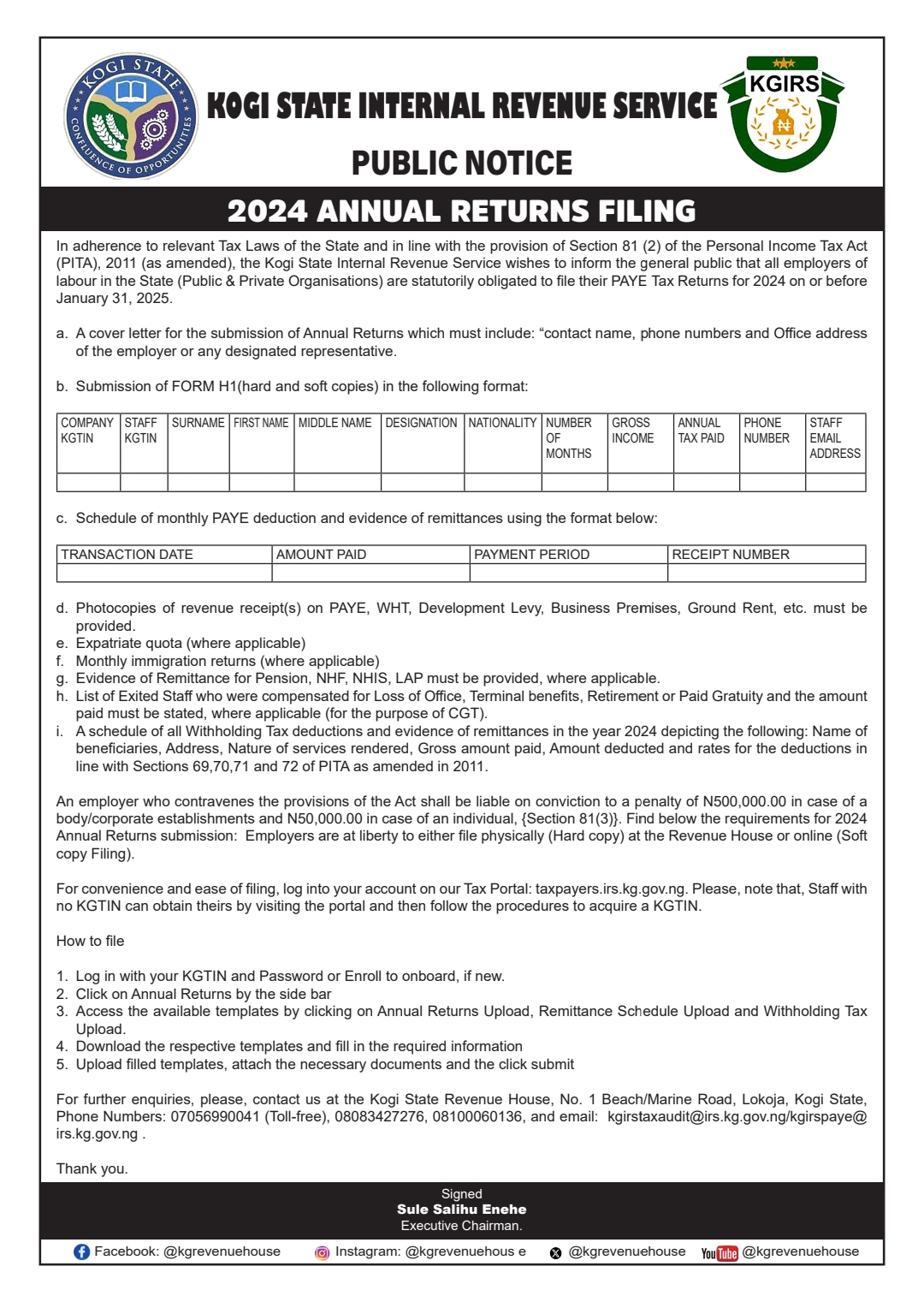
Kogiflame
The Executive Director Kogi State Primary Health Care Development Agency (KSPHCDA), Dr. Musa Omeiza Mu’azu, has solicited the support of the Ohimege of Koton Karfe, HRM Alh. Dr. Saidu Akawu Salihu, on effective implementation of Routine Immunization (RI) Activities in the state.
Dr Mu’azu made the call when he led a team on Sensitization and Advocacy visit to the palace of Ohimege Of Koton-Karfe on Wednesday, on Routine Immunization (RI) and other health interventions in the state.
He expressed appreciation to the monarch for his contributions and commitment to the health sector over the past years in sensitising the community on the importance of RI and other health interventions.
The ED reaffirmed the commitment of His Excellency, Gov. Ahmed Usman Ododo towards the delivery of quality healthcare services to the people of the state especially at the grassroots.
According to him, the objectives of the advocacy visit is to emphasize the importance of RI and other health interventions in order to utilise and maximise primary health care services in the community.
He added that the visit was to also solicit for support of the traditional leaders in taking ownership of immunization activities and ensure adequate mobilization and sensitization for effective health care service delivery.
Dr Mu’azu assured the royal father and his Council of Chiefs of the agency’s committment under his leadership, to ensuring effective and efficient health care services delivery to various communities in the state.
The ED urged the communities to comply with the health care delivery system in order to benefit from all the opportunities offered by State Government through the primary health care development agency.
Dr. Mu’azu appreciated the traditional leaders on behalf of the Commissioner for Health, Dr. Abdulazeez Adams Adeiza, for their support and commitment towards the immunization activities in the state.
In his response, the Ohimege congratulated the ED KSPHCDA for his appointment and the great opportunity given to him by the Governor to pilot the Agency’s affairs in the state.
The royal father who described himself as a health friendly traditional leader, appreciated the ED for starting on a good step by recognising the roles of traditional leaders in primary health care services.
“When any community or society makes use of their primary institutions there will be less or no issues in the secondary institutions,” he said.
The paramount ruler promised to comply and direct all his subjects to do same according to standard of operations as a traditional leaders in their various communities.
Earlier, the Director Disease Control and Immunization (DDCI), Mrs Deborah Odaudu, commended the Ohimege and his subjects for their dedication towards health activities in their domains.
She also appreciated them for taking charge in immunization activities at their various communities in the local government area, and expressed her happiness over the sensitization visit.
Odaudu re-emphasized the need for traditional leaders to take ownership of all health activities and ensure that all their communities complied with the immunisation exercise.
Also speaking the Project Manager of SERICC, Mrs. Khadijat Garuba, who outlined the objectives of the sensitization, urged traditional leaders to prioritise monitoring and supportive supervision during campaigns.
“As traditional rulers, you have the right to supervise and monitor the health officials in your domain to ensure quality healthcare services to our people at the grassroots.
“There is need to be getting feedback from our royal fathers of the happenings in the PHCs in their respective domains.
“There should also be significant collaborations among stakeholders in sustaining healthcare initiatives,” Garuba said.
On his part, the representative of the World Health Organization (WHO), Dr Gwonson Dauda, who spoke on behalf of the developing partners, appreciated the traditional leaders for the warm reception and their support.
Dauda stressed the importance of collaborating with the traditional leaders in any health intervention in the communities.
He added that their roles as a partner was to ensure they supported the state both financially and technically to having a healthy nation.
“We will appreciate if all the traditional leaders lived up to their expectations in ensuring that we have universal health coverage across the state,” Dauda said.
In their various comments, other traditional leaders expressed their concerns over incentives and local government health staffs in carrying them along in their activities.
All their concerns were noted for necessary actions by the ED KSPHCDA.
In his closing remarks, the Director Community Health Services & Social Development (DCHS/SD), Dr. Abudullahi Onimisi, appreciated all the traditional leaders for their commitment to health sector.
Onimisi, who highlighted health benefits of routine immunisation, urged the people to be committed to awareness creation, and have the spirit of selfless services to their community.
He, therefore, urged all the traditional leaders to cooperate with the state in ensuring we have universal health coverage.
